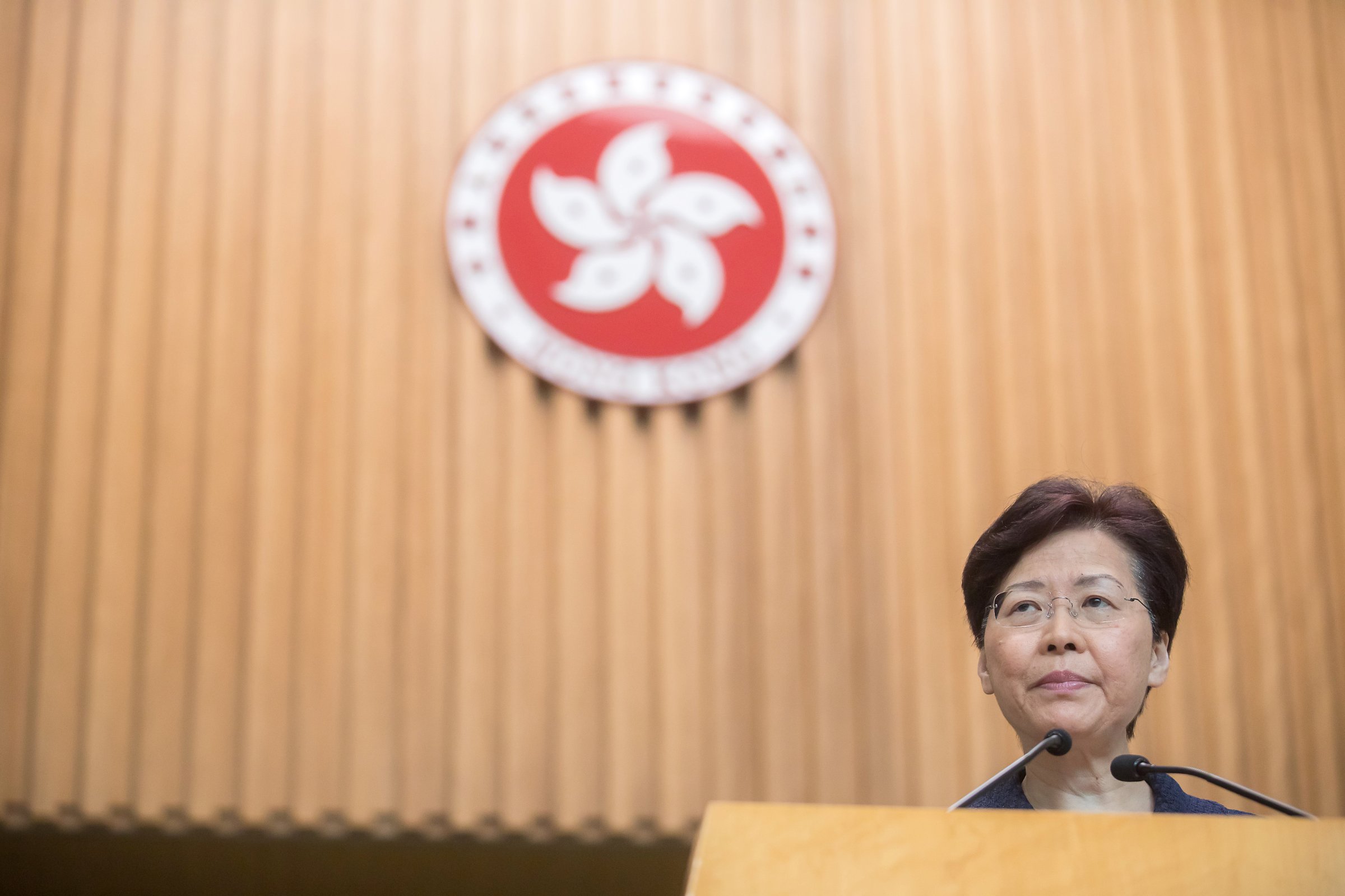
Carrie Lam, Hong Kong’s embattled top official, held out an olive branch to anti-government protesters Tuesday, promising “a platform for dialogue with people from all walks of life.”
She added: “This is something that we want to do in a very sincere and humble manner.”
Speaking at a media briefing before the weekly meeting of her cabinet, Lam also pledged to launch “an important fact-finding study in addition to a very robust system to investigate and look at the complaints against police over this prolonged period of confrontation and violence.”
Lam did not give specifics but said she would “reach out to the community as soon as possible.” She also did not say if she would formally withdraw, instead of merely suspend, a bill that has been the focus of intense opposition.
Her remarks came as the head of the independent body charged with investigating complaints against police described as “eminently reasonable” the withdrawal of the bill, which would have allowed, for the first time, the extradition of fugitives to mainland China from the former British colony.
Anthony Neoh also called for “real talking from the heart” and suggested that there might be ways of granting greater freedoms to Hong Kong’s young people, who have been in the forefront of the disturbances. “Let’s have it out and see what could be done on this. I think it’s time to put things on the table and see what could be done,” he told local media.
The extradition bill has provoked a storm of opposition in Hong Kong, with detractors arguing that Beijing would use it to round up dissidents and critics of the communist regime.
Read more: How Protests Turned Into a Battle for Hong Kong’s Soul
However, the initial campaign against the bill has quickly escalated into a rebellion against Hong Kong’s unrepresentative administration. Many protesters also repudiate Chinese sovereignty and demand self-determination for Hong Kong’s 7.2 million people, who are culturally and linguistically distinct from mainland Chinese.
The semi-autonomous enclave is enjoying a rare period of calm after a large march on Sunday was pulled off peacefully, in contrast to weeks of pitched battles between protesters and police. However tensions remain high, with many protesters threatening stepped-up action this weekend.
Reports that Chinese border officials are searching the phones of Hong Kong travelers, for photos and other evidence of participation in the protests, have set many on edge. So has the news that an employee of the British consulate in Hong Kong has gone missing after traveling crossing the border to attend a trade event in their neighboring Chinese city of Shenzhen.
“We are concerned by reports that a member of our team has been detained,” a U.K. Foreign Office spokesman told the BBC.
Meanwhile, Beijing has reacted with fury to a Taiwanese offer of asylum to Hong Kong activists.
According to AP, an official at the bureau overseeing cross-strait affairs said the offer from Taipei amounted to covering up “the crimes of a small group of violent militants” and would embolden their “audacity in harming Hong Kong.”
There are close connections between Hong Kong and Taiwan, a self-governing island that Beijing regards as a renegade province. The Taiwan News reports that emigration from Hong Kong to Taiwan jumped 28% this year.
More Must-Reads from TIME
- Inside Elon Musk’s War on Washington
- Meet the 2025 Women of the Year
- The Harsh Truth About Disability Inclusion
- Why Do More Young Adults Have Cancer?
- Colman Domingo Leads With Radical Love
- How to Get Better at Doing Things Alone
- Cecily Strong on Goober the Clown
- Column: The Rise of America’s Broligarchy
Contact us at letters@time.com